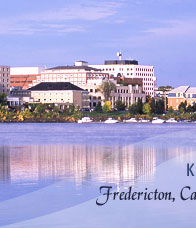Foreign service workers reach tentative agreement with federal government
10/18/2013
Deal ends longest strike in public service history
By Kathryn May, Ottawa Citizen
OTTAWA — After staging the longest strike in public service history, Canada’s diplomats have reached a compromise with the Conservative government, bringing an end to a dispute that battered the country’s economy and its reputation abroad and may forever change the job action tactics of striking public servants.
The two sides reached an agreement after highly secretive talks this week to resolve the often acrimonious six-month strike, which is estimated to have cost the Canadian economy, particularly the tourism industry and universities, close to $1 billion.
Neither side caved — or as Treasury Board President Tony Clement said during the strike, “folded like a $3 suitcase” — but they did bend.
In a statement, Clement said the agreement is “consistent” with those reached with other unions and reflects the government’s “commitment to reaching fiscally responsible settlements that are fair to Canadian taxpayers and to employees.”
The Professional Association of Foreign Service Officers (PAFSO) didn’t get the wage increase it wanted to put the country’s 1,350 officers on the same level as their colleagues, but it struck a deal that got them more than halfway there.
The tentative agreement was signed Thursday afternoon and the union immediately stopped all strike and work-to-rule action around the world.
PAFSO president Tim Edwards said the union is “satisfied” and will now seek the approval of its members in a ratification vote.
Foreign service officers — who work for the Department of Foreign Affairs, Trade and Development, Citizenship and Immigration Canada and the Canada Border Services Agency — have been without a contract since June 2011.
“This agreement was reached through compromises on both sides,” Edwards said. “We salute the spirit of constructive engagement which our employer brought to our latest discussions. This deal is a victory for free and fair bargaining in the federal public service.”
Despite the deal, many say the fact the strike outlasted some of the legendary postal worker disputes signals that the Conservatives are prepared to play hardball as all federal unions gear up for the next round of bargaining in 2014.
The diplomats were the first public servants to square off against the Conservatives since they came to power in 2006. The union’s perseverance surprised many, with newly-minted president Edwards matching Clement’s stubbornness with a persistence and tact that some say should become a model for all other federal unions.
The strike began over pay but quickly turned into a battle for respect and recognition, a tack that seemed to keep members’ support from flagging. It was also about dispelling the outdated stereotype of the high-living diplomat, one at odds with the reality of a post-9/11 world in which foreign service officers are often posted to conflict areas.
In fact, Edwards said the image of the coddled diplomat that Treasury Board tried to perpetuate in its communications strategy during the strike only “heightened the determination and unity” among members.
But the heart of the strike was the growing wage gap between foreign service officers and other professionals doing the same work in the same office, both at home and abroad.
There are four levels of foreign service officers and, depending on their level, they are paid between $3,000 and $14,000 a year less than economists, commerce officers, policy analysts and lawyers.
Until now, the government refused to pay beyond the “pattern settlement” of a 5.2-per-cent raise given to all other employees over three years. It argued that foreign service officers were well-paid, received generous perks and said the pay couldn’t be that bad because it had no shortage of people lining up for jobs.
PAFSO said the government could have settled much earlier, claiming agreements had been reached with other unions that put more money into the pockets of employees such as lawyers, prison guards, engineers and architects than the “pattern settlement.”
The compromise the two parties finally reached is worth about $2.5 million over the life of the contract, $1.7 million less than a proposal the union said would wipe out the wage gap.
PAFSO is the second-last of 18 federal unions to settle with the government since a contentious round of bargaining to take away severance pay for voluntary departures began several years ago. Only the border guards, a traditionally militant bunch, have yet to settle.
Other federal unions see Clement’s hardball position against the diplomats as a sign of what’s to come in the next round of bargaining in 2014; the flashpoint of this round will be the government’s plan to replace the existing sick leave regime with a new short-term disability plan.
Union leaders are girding for a battle and they say the foreign service strike has hardened their resolve to work together. This stance partly led to an unprecedented meeting in Montreal several weeks ago to develop a common strategy when they face off against Treasury Board next year.
Lisa Blais, president of the Association of Justice Counsel, said the strike will be a case study and model for all unions.
“Hats off to PAFSO, I think they did a wonderful job ... The way they rallied their members and kept them united was done with class and discretion and they took the high road on doing whatever they had to do,” she said.
The strike also made law. The Public Service Labour Relations Board rapped the government for bargaining in bad faith in a ruling that will set a precedent for future complaints involving the duty to bargain in good faith. In addition, another ruling on the union’s use of the department’s email system to e-picket sets new boundaries for unions using electronic job action.
PAFSO is one of the smallest and least militant of the federal unions. It had been on strike only once before, in 2002, and didn’t even have a strike fund until the year before that.
But this strike was a long time coming, and the issues that drove workers off the job have been festering for years. Various studies in the early 2000s found that foreign service officers were the lowest-paid professionals in the public service and that their pay lagged way behind their American counterparts.
The union dramatically shifted its tactics in 2001 when it hired Ron Cochrane, a longtime union negotiator for the Public Service Alliance of Canada, who led members on their first strike. Cochrane has since become the dean of the federal labour movement and is the first union employee, rather than union leader, to co-chair the joint union-management National Joint Council.
The union made some gains but the wage controls imposed by the Conservatives after they came to power further widened the wage gap.
The strike began on April 2 with members employing “soft tactics,” such as staging e-pickets and lunchtime information pickets, refusing to use their BlackBerrys after hours and dressing down at work.
But slowing down the processing of visas proved the most effective and disruptive tactic. Rather than a mass walkout, the union sporadically withdrew services at embassies in such cities as Beijing, Hong Kong, Shanghai, New Delhi, Chandigarh, Manila, Mexico City and Sao Paulo.
The move worked because under the Public Service Labour Relations Act, the government can’t lock out workers. The unpredictable temporary strikes disrupted service and wreaked havoc because managers didn’t know where services would be withdrawn.
The Tourism Industry Association of Canada begged the parties to settle before the summer holiday peak and likened the dispute to retail clerks striking at Christmas. It predicted the visa backlog would cost the tourism industry $280 million.
Similarly, Canada’s universities and colleges said the delays would jeopardize the arrival of thousands of foreign students who need visas to study in Canada and pump billions into the economy during their stays.
The strike also left relations strained. Clement came out swinging from the start, portraying foreign service officers as a pampered and privileged class. The union discovered Foreign Affairs officials were monitoring its emails to members and the department ultimately blocked the union’s messages to members’ work addresses. Foreign Affairs threatened to discipline and even fire employees who used federal email systems to e-picket.
Management refused to go to PAFSO’s awards banquet to honour the work of outstanding foreign service officers. The department pulled temporary workers — who typically fill in abroad during peak times or to cover vacations — out of their postings and sent them home if they participated in the strike. Most recently, PAFSO urged its members to make donations directly to the United Way rather than make the department and its executives look good by taking part in the workplace campaign.
While the tentative agreement resolves some pay issues, many expect the slew of allowances foreign service workers and all other public servants receive when they are posted abroad will be on the table when they are reviewed this fall. PAFSO is braced for another fight if the government presses to reduce the allowances, which could water down the monetary gains the union won for members in this week’s agreement.
Colin Robertson, a former diplomat and one-time PAFSO president, said the strike dragged on longer than necessary because the government wanted to show the other unions “they mean business” when the next round of collective bargaining begins.
But he argued a big outstanding issue remains after the settlement — what kind of foreign service the government wants. He said the strike, led by “the most white-collar of the unions,” showed that “government may respect individual foreign officers, but after seven years, there is not a lot of confidence in the service, which is unfair and unfounded.”
Ian Lee, a professor at Carleton University’s Sprott School of Business, said the strike was as much about the Conservative party positioning itself as the defender of the ordinary Canadian in the next election.
He said the prolonged strike was “a gift from heaven” for the Conservatives to get out their message that they will be tough on unions and will rein in the costly benefits and pensions of public servants.
The government deliberately exploited the image of foreign service officers as the pampered elite of a privileged public service who enjoy pensions and benefits that are the envy of most Canadians, he said.
“I think PAFSO played into the hands of the Conservatives. No matter how legitimate their cause, the outside observer still sees the stereotype that they lead the life of Riley, living in exotic places, highly educated, hobnobbing with the powerful. Ordinary Canadians see the public service as an elite, and the foreign service is the elite of the elite,” said Lee.
“They are facing a tough year in 2014 for collective bargaining and they will play real hardball. They couldn’t cave on their demands because that would undermine the message they want in the bargaining and lead-up to the 2015 election. It’s a policy-driven and politically driven message, but it’s part of their philosophical outlook. They feel public servants have to be reined in because their benefits and wages are superior to the rest of Canadians.”
|





